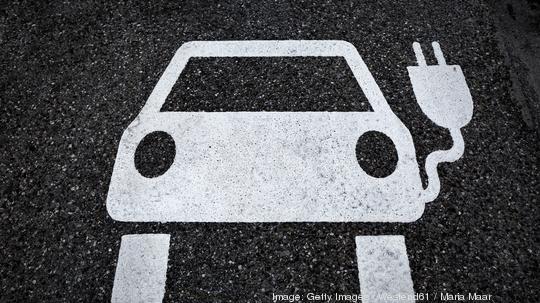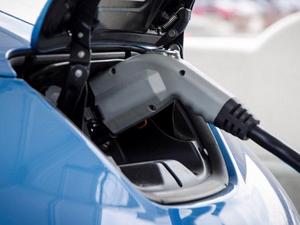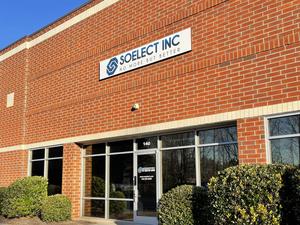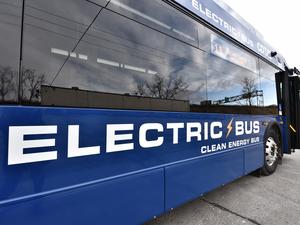
North Carolina regulators approved a program to help Duke Energy customers install electric vehicle chargers that would accelerate adoption of low- and no-carbon transportation in the state.
But they have delayed action of a $56 million proposal by Duke Energy Carolinas and Duke Energy Progress for a second phase of pilot programs that would help the utilities design and promote policies involving electric cars, trucks and buses. But the N.C. Utilities Commission ordered Duke back to the drawing board on other elements of the plan to consider the possibility of using federal funds for at least some of it.
The approved program authorizes Duke's utilities to offer "make-ready" credits to homeowners to reduce the costs of installing electric vehicle chargers in their homes. It has been fully approved, and Duke can start offering those credits to customers. That should help Duke recruit 200 customers to a new $600,000 pilot to test what Duke executive Lon Huber calls a “cutting-edge” program with four automakers on utility-managed charging of electric vehicles for a flat monthly fee.
The pilot program that has been delayed involves several programs to promote adoption of electric vehicles in North Carolina. A part of that $56 million pilot could also help promote the flat-fee managed charging proposal. It would make charger installation simple for customers by creating a pilot program to install and maintain a charger in a residential customer's home under a lease arrangement. That pilot program is among the features delayed by the commission.
Huber, Duke’s vice president of rate design and strategic solutions, called the flat-fee charging pilot a first-of-its-kind program. “It does have elements that have been tested out elsewhere. But nobody has put these two things together where you have that fixed subscription price and then the active-managed charging,” he recently told the Charlotte Business Journal.
Larger proposal
Coupling that pilot with the assistance for installing home chargers, Duke says, will enable dealers with BMW of North America, Ford Motor Co., General Motors and American Honda Motor Co. Inc. to recruit 200 Duke customers for the managed-charging pilot by allowing them to promote the charger-installation assistance and the managed charging together.
The $600,000 pilot was proposed in a filing on Feb. 11. The commission has yet to approve it. But Duke spokesman Randy Wheeless says the commission’s approval of the make-ready program is encouraging and an important win for Duke. He described it as foundational to everything Duke is doing on residential electric vehicles.
The approved program – called Make Ready Credit — was a program filed separately from the larger pilot Duke submitted to the commission last year after working with stakeholders at regulators' direction to develop a detailed plan for broader efforts to encourage the adoption of electric vehicles. The larger program contains additional money for public charging stations, assistance for school systems to buy electric-power buses and putting commercial charging stations on major highways.
In a ruling issued yesterday, the commission says it “recognizes the work of Duke and the parties in the Electric Transportation Stakeholder Group” as a result of an order the commission issued in October. But it says that the situation has changed since then.
Federal money
The commission cites North Carolina’s adoption of carbon-reduction targets in House Bill 951 and its need to adopt a Carbon Plan for the utilities.
And it notes that in November, the U.S. Congress adopted the Infrastructure Investment and Jobs Act, which “among other things, authorizes the investment of billions of dollars in federal funds in the country’s utility infrastructure, including electric transportation infrastructure.”
The order instructs Duke to continue working with the stakeholder groups, but it must now “investigate options for planning, designing, and implementing its Phase II Pilots in ways that take into consideration the possibility of receiving funding under the IIJA and other initiatives.”
It orders an update on that work within 90 days.
“We look forward to adjusting our plans to meet the ambitious challenges in front of us. Duke Energy will continue to work with stakeholders and other interested parties to actively pursue near-term programs that leverage different funding sources, benefit all Duke Energy customers and make a meaningful environmental impact,” Wheeless says. "We are focused now on rolling out our Phase I plan that was approved in late 2020.”
Wheeless is referring to $25 million worth of electric vehicle pilots the commission approved that year. The commission in that order instructed Duke to work with stakeholders to develop a Phase II pilot program, which resulted in the $56 million proposal last year.
Duke Carolinas and Duke Progress are subsidiaries of Charlotte-based Duke Energy Corp. (NYSE: DUK).
The original version of this story conflated the approved Make Ready Credit program Duke Energy will use to reduce the costs of installing electric chargers in residential homes with a separate pilot program to install chargers for residential customers in a lease and maintenance arrangement.






